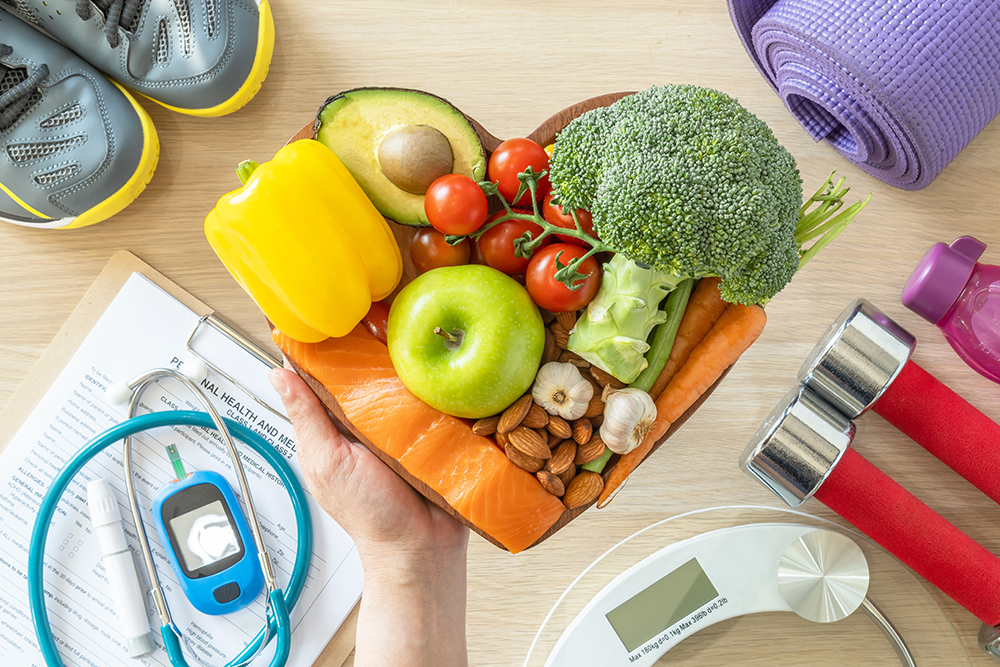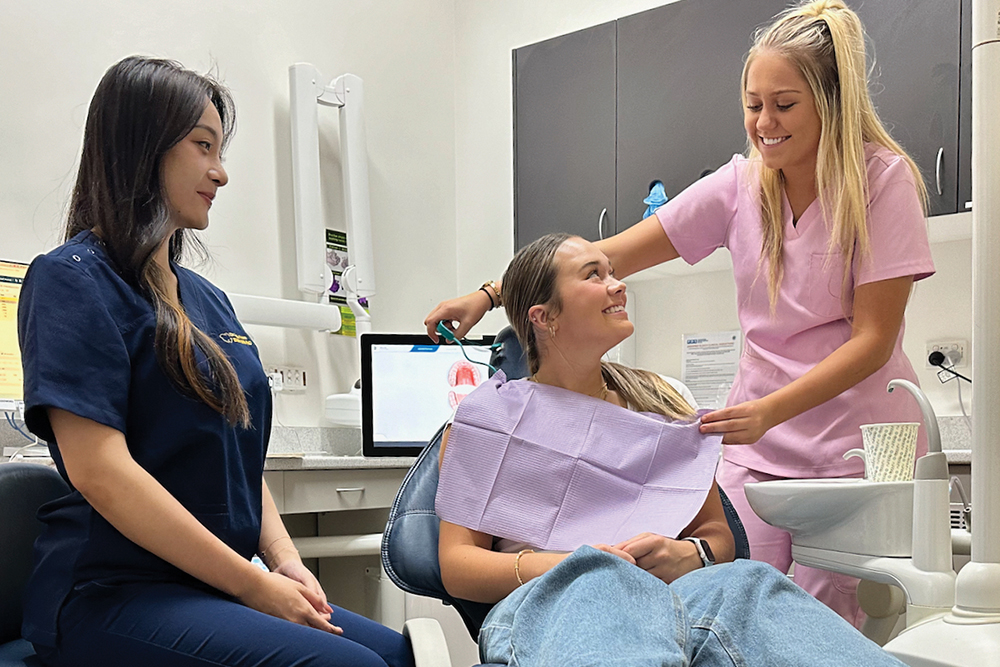AS we head through the cool weather, it’s a good time to look after the immune system, which is a sort of a microscopic defence force for your body.

Its mission is to protect peace and harmony within your body by seeking out and destroying harmful invaders (pathogens) such as viruses and bacteria.
Here are some of the key nutrients that support the immune system to fight off colds and flu:
Protein
PROTEINS are the building blocks of our whole body and all of the layers of our defence system are made from proteins. For instance, you need protein to build and repair your skin, the first line of defence. Without adequate dietary protein, damage to this barrier would take longer to rebuild and would allow more time for an enemy pathogen to invade. Make sure you include a source of protein with each meal to support your immune system
Quick tips:
- Have a boiled egg with breakfast or as a snack at work.
- Add a four-bean mix to your lunch.
- Pour some lentils or beans into a warm winter soup.
Water
Water helps kidneys remove chemical toxins from the bloodstream. It also aids in the production of mucus to trap and flush out enemy pathogens and helps to carry immune cells to the site of infection through the lymph vessels. Being well hydrated is vital for these processes to happen effectively.
Quick tips:
- Drink a glass of water with each meal and snack.
- Include herbal teas throughout the day.
- Flavour water with fresh fruit, cucumber or mint.
Vitamin C
VITAMIN C helps the immune cells to engulf and destroy enemy pathogens. Although many people try to treat their cold or flu with vitamin C supplements, research suggests our best strategy is for our normal diet to include enough from food.
Very high levels of vitamin C are found in red capsicum, oranges, kiwi fruit, grapefruit, broccoli and moderate amounts in most other fruits and vegetables.
Quick tips:
- Pack two pieces of fruit for lunch each day.
- Chop up some capsicum sticks to have with hummus at afternoon tea.
Vitamin D
REGULAR, adequate vitamin D helps to improve our physical and chemical barriers to infection. Vitamin D helps to create a chemical called cathelicidin, an antimicrobial peptide, which helps to neutralise invading pathogens in our nose, throat and lungs.
Getting outside every day is the most effective way of ensuring adequate vitamin D. Ten minutes of sun exposure to your hands and face between 11am and 2pm is sufficient for most people to meet their requirements for vitamin D.
Vitamin A
VITAMIN A may be important for the training and development of lymphocytes, which are like the special forces of your immune defence force. A deficiency in Vitamin A has been linked to an imbalance of lymphocytes and poor signalling between lymphocytes
While liver is the richest source of vitamin A, you can also get it from sweet potato, spinach, carrots, rock melon and red capsicum.
Quick tips:
- Make sweet potato mash instead of white potato.
- Chop up a carrot to have with a sweet potato dip as a snack.
- Include an orange vegetable with every dinner.
Zinc
ZINC plays a vital role in cell division. Your immune cells need to multiply quickly in the event of pathogen invasion. Inadequate zinc intake has been linked to a suppressed immune system.
The best food sources of zinc are meat, fish and poultry as well as cereals and dairy foods.
Quick tips:
- Have a 200g tub of yogurt as a snack each day.
- Include red meat for dinner 2-3 times a week.
- Use chicken or tuna in your lunch sandwich.
Resveratrol
THIS little-known food chemical helps to activate immune cells called natural killer cells (great name for an immune cell, if you ask me). Resveratrol also increases the number of signalling chemicals, called cytokines, which alert immune cells to join a battle against a pathogen.
You can find resveratrol in the skins of fruits such as grapes, blueberries, raspberries and mulberries. Resveratrol can also be found in peanuts, red wine and dark chocolate.
Quick tips:
- Add blueberries or raspberries to your morning porridge or cereal.
- Have a handful of red grapes as a snack 1-2 days a week.
- When including chocolate in the diet, opt for dark chocolate.
Clare Wolski is a practising dietitian at The Healthy Eating Hub, call 6174 4663.
healthyeatinghub.com.au/about-the-hub/healthy-eating-team/clare-wolski-apd/
Who can be trusted?
In a world of spin and confusion, there’s never been a more important time to support independent journalism in Canberra.
If you trust our work online and want to enforce the power of independent voices, I invite you to make a small contribution.
Every dollar of support is invested back into our journalism to help keep citynews.com.au strong and free.
Thank you,
Ian Meikle, editor




Leave a Reply